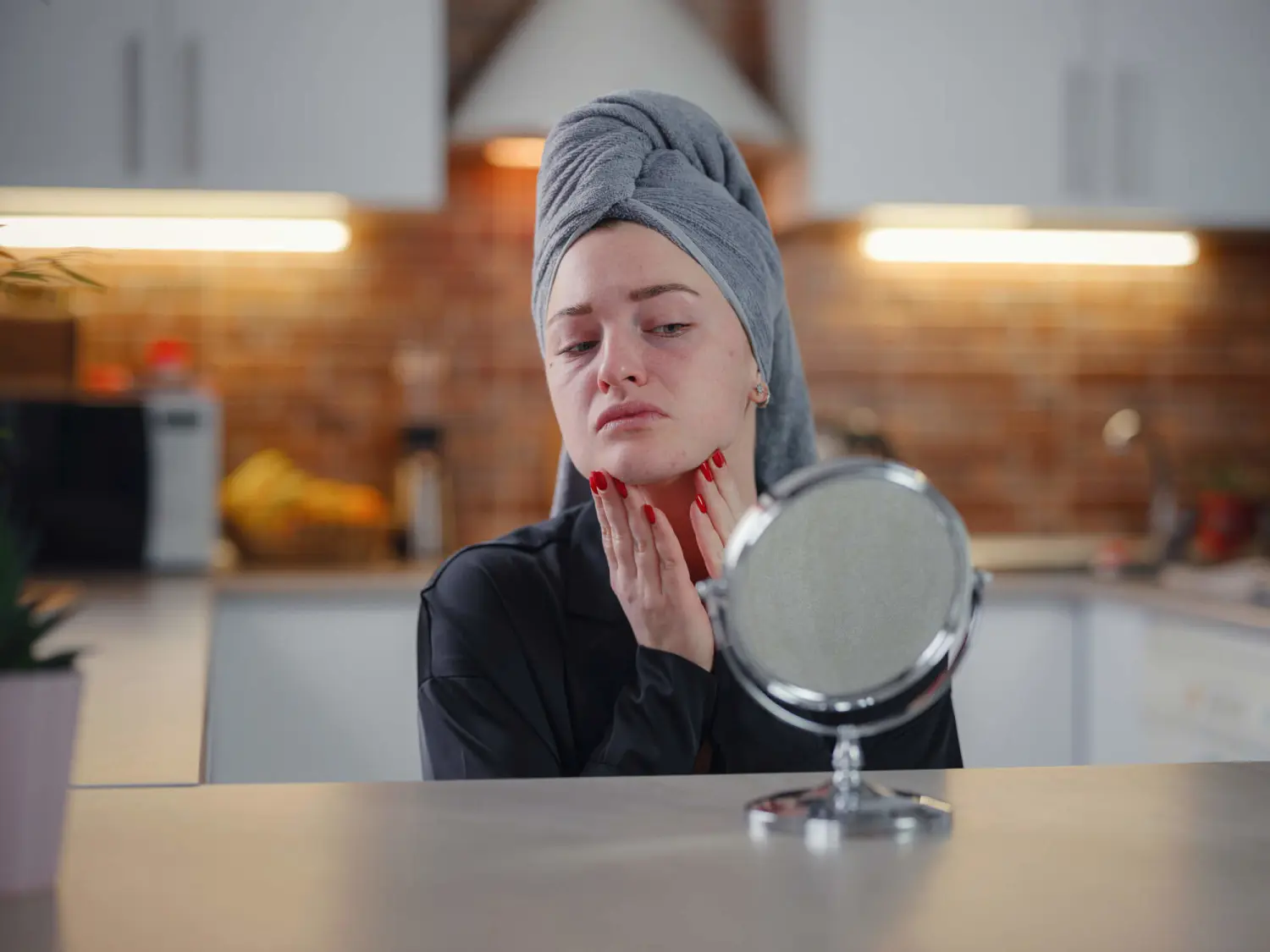Acne is a skin condition that occurs when oil and dead skin cells clog up your pores causing pimples, whiteheads, or blackheads. It can occur in people of all ages but is most common during puberty, when sebaceous glands activate, producing oil.
Acne is the most common skin condition in the United States, affecting up to 50 million Americans each year. Though it is not dangerous, it can be uncomfortable and may leave scars.
Types of Acne
Acne is a broad term to describe the skin condition that is caused by clogged pores on the surface of the skin. However, acne can vary in form and severity. There are a number of different types of acne conditions, including:
Blackheads: Blackheads are open, but clogged pores. Dead skin and sebum collect in the pore, causing a small red bump, and air exposure causes the open pore to discolor.
Whiteheads: Whiteheads are similar to blackheads, except the pore is closed to the air, causing a white tip.
Papules: Papules are small, red bumps caused by oil and dead skin cells clogging pores on the surface of the skin.
Pustules (or pimples): Pimples are small red bumps like papules, but are filled with pus. The pus in a pimple causes a small white tip to form on the bump.
Nodules: Nodules are firm, skin colored bumps that live deep under the skin. These bumps can be painful and difficult to treat with over-the-counter medication.
Cysts: Cystic acne describes large, inflamed, and painful lesions that are found deep beneath the skin. Cystic acne is softer than nodules, due to the infections being filled with pus. These bumps can burst, causing further infection to the skin surrounding the cyst. Cysts are caused by clogged material deep within the pore of the skin. This type of acne can be very difficult to treat, and can result in scarring of the skin, if improperly treated.
Acne Causes
Acne is a skin condition that is occurs when the pores on the surface of the skin become clogged by hair follicles, oily skin, bacteria, and dead skin cells.
Hair follicles in the skin are connected to oil glands (sebaceous glands) that produce oil on the skin called sebum. When androgen hormones become active during puberty, these follicles can become sensitive to excess sebum and bacteria on the skin. As oil builds up in the pores of the skin, they become infected and inflamed. This inflammation eventually becomes a pimple, a whitehead (a closed pore), a blackhead (an open pore), or a pimple (pustule with pus at the tip).
Some common acne triggers/ irritants include:
Hormonal changes: Fluctuating levels of the androgen hormone during puberty or around a woman’s period can cause excess sebum production, leading to clogged pores.
Medications: Certain medications such as corticosteroids, birth control pills, or testosterone can cause hormonal change and can lead to clogged pores.
Makeup or personal care products: Some cosmetic products and oily skin care products (like oily lotion, pomade, and face cream) can cause pores to clog. Most products are now tested to avoid clogging pores, and carry the label non-comedogenic.
Air pollution or weather: Heavy polluted air, or humid air can cause excess sweat and oil build up on the skin, which can lead to clogged pores.
Clothing: Clothing pressed tight against the skin of the torso, legs, or face can cause irritation, which leads to clogged pores.
Acne Complications
Severe acne breakouts can lead to acne scars on the face and body. According to the American Academy of Dermatology (AAD), acne scars can become more pronounced with age as the body loses collagen. This can make scarring from acne breakouts stubborn and hard to get rid of. The AAD recommends clearing skin of acne breakouts prior to undergoing treatment for acne scars.
